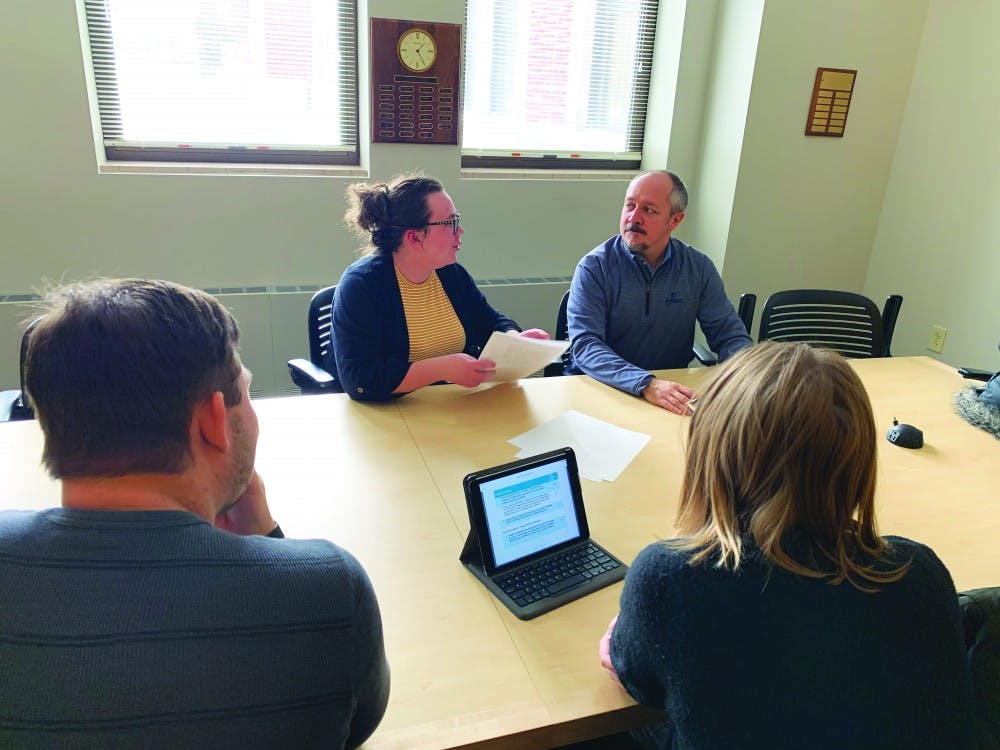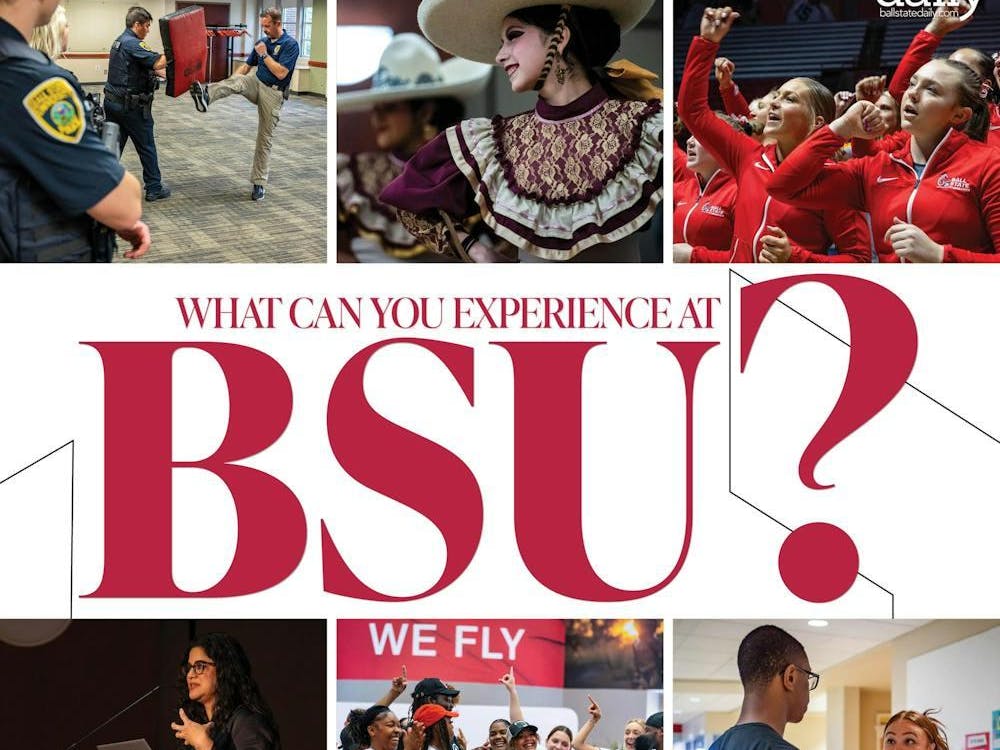The concept of saving energy and using more eco-friendly resources has been around for years — businesses like the Indianapolis International Airport have even made the switch entirely to solar panels.
To continue the positive shift, the National Electrical Contractor Association works to partner with universities across the U.S. to present an eco-challenge to students: pitching, integrating and executing green energy plans to local nonprofits.
Ball State is one university that offers a one credit, independent study course dedicated to the ELECTRI International Green Energy Challenge, and this year, the construction management students in the class have decided to partner with the Muncie Animal Rescue Fund, ARF.
“It’s a good way to network, talk to a lot of contractors and get your name out there,” said Michale Delong, team leader for the challenge and a junior construction management major. “Not only does this help the nonprofit, it also gives students experience with companies and the industry.”
Alongside Delong are seven other team members — Clayton Berrisford, Cassie Dorony, Nick Broering, Casey Fentz, Jeff Gasper, Alisha Health and Kevin Zielinski — led by Sherif Atallah, a professor of construction management.
“It’s important to learn about solar energy,” said Cassie Dorony, a junior team member involved in the challenge. “It’s a big part of our field now. This competition is great for experience and networking.”
This year, students chose to partner with ARF because it was a business willing to work with them and smaller than most businesses involved in the challenge.

Dorony was in charge of reaching out to the nonprofit and upon first contact, ARF was excited to get the opportunity to participate.
Over the course of the semester, the goal for the students in the class is to help ARF incorporate the plans and resources suggested by the students into their business, which cannot afford to have the lights shut off at night because of the animals it houses.
So far, solar panels are one option suggested for ARF, but Dorony said the nonprofit would first would need 132 panels total which is not very efficient, so ARF would first implement new resources on a smaller scale as a trial run that would lead to potential greater changes.
“The most challenging part of this project is getting businesses to work with us and creating a plan that is best suited for their work,” Dorony said.
At the end of the semester, the class will present their written proposals to a jury of contractors and industry partners who will then select the top three teams. The teams that place top three will then present their ideas orally at a conference in fall 2019, where a jury will name a final winner.
Both Delong and Dorony hope their team has done enough work and research to make it to the conference.
For years, this challenge has been educating students on the importance of green energy, and Delong said she hopes ARF will implement their suggestions since the decision is entirely up to the company.
“Our main goal to help ARF become more energy efficient is lighting retrofit or changing out all their lights to LED,” Dorony said. “We’re also going to give them brochures about how to save energy at home and reduce thermal loss. It was hard to work with such a small scale business, but we were helping a great nonprofit.”
Contact Erika Leak with comments at emleak@bsu.edu.





